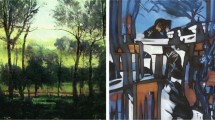Abstract
This paper compares two interactive interfaces, Dress and Ange, designed to facilitate an experiential address of the user or viewer’s relationship to touch. Dress, a polypropylene dress fitted with small “counters”, which offer glimpses of human flesh for sale, is a shop that sells the possibility to touch human skin. The “sales-person” wears this “body-shop” and wanders through public domains inviting people to pull on a “pearl” of their choice and, thereby, expose a parcel of skin that they are to caress gently, momentarily with their fingertips. The second device, Ange, consists of a transparent corset with metal rib-like protuberances. Through the strategic use of flex sensors, these rib-keys act as points of actuation and volume control levers for corresponding sound samples. Ange has been designed to be exhibited, performed or worn in the public domain in a similar way to Dress. The inspiration and consequent design of both Dress and Ange will be discussed and compared, as will their public exhibition and performance in order to demonstrate the effectiveness of these design solutions. In conclusion, the value of particular design strategies to coerce or seduce a viewer to address highly personal issues, will be raised.













Similar content being viewed by others
References
Tony Dunne of Dunne and Raby, was, at the time of the project, principal researcher in the Department of Interaction Design Research at the RCA and head of an RCA Product Design Department Platform, with Durrell Bishop. Durrell Bishop works at IDEO London. He currently tutors in the RCA Department of Interaction Design, though, at the time of the project, was running a Product Design Platform with Tony Dunne. Freddie Robbins, independent artist and designer, tutors in the Fashion Department at the RCA
“Ange Anatomique” translates literally as Anatomical Angel. The engraving dates from 1746, and is part of a series of full-colour engravings based on anatomical dissections made by French Artist Jacques Fabien Gauthier d’Agoty
Comar P (1993) Les Images du Corps. Découvertes Gallimard Sciences, France, p 160
Wilde D Translation Ibid, p 81
Cummings EE Complete poems: 1904–1962, George J Firmage (ed) Liveright Publishing Corporation, USA: 1923–1991, the Trustees for the E. E. Cummings Trust: 1976–1979, George J Firmage: 1997–2003, The Academy of American Poets
Acknowledgements
Both Dress and Ange were created at The Royal College of Art in London as part of an MA in Interaction Design. Special Thanks to Tony Dunne, Freddie Robbins and Durrell Bishop for their reflection, support and feedback during development of Dress; and Evangelos Kaistamos, Fred Jean and Carmel McElroy for the loan of equipment. Ange Sound Design realised by Tara Creme. Electronics designed with the support, guidance and assistance of Dr. Jon Rogers and Murat Konar. Special thanks to Naoko Akiyama for her support and assistance with body casting and moulding, draping and sewing. Thanks to Murat Konar, Dominic Robson and Georg Tremmel for Max programming. Thanks also to all the technicians in the RCA Department of Architecture and Design Workshop, Jewellery Design Workshops, Vehicle Design Modelling Workshop, Textiles Dying Rooms, Department of Ceramics and Glass Workshops and the Department of Sculpture.
Author information
Authors and Affiliations
Corresponding author
Rights and permissions
About this article
Cite this article
Wilde, D., Birkmayer, S. Dress and Ange: coercing the address of highly personal body-centric issues. Pers Ubiquit Comput 8, 264–273 (2004). https://doi.org/10.1007/s00779-004-0287-6
Received:
Accepted:
Published:
Issue Date:
DOI: https://doi.org/10.1007/s00779-004-0287-6



